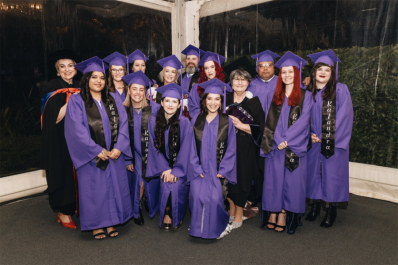As we age, it is natural for our bodies and minds to undergo changes. These changes may include a decline in physical abilities and cognitive functions. However, it is essential to recognise that aging does not diminish the richness of human neurodiversity. Neurodiversity in older adults encompasses a wide range of neurological variations, including dementia, Alzheimer's disease, Parkinson's disease, and other conditions. In this blog, we will explore the significance of recognising neurodiversity in the older person, dispelling myths about aging, and promoting a more empathetic and supportive society for our seniors.
Challenging Misconceptions about Aging and Neurodiversity
Unfortunately, society often associates aging with a decline in mental capabilities, leading to widespread misconceptions about the cognitive abilities of older individuals. While it is true that some older adults may experience cognitive changes, it is crucial to differentiate normal age-related changes from specific neurodiverse conditions. By challenging these misconceptions, we can create a more inclusive environment that acknowledges the diverse cognitive experiences of older adults.
Early Detection and Intervention
Recognising neurodiversity in older adults involves early detection and appropriate intervention. Timely diagnosis of conditions such as dementia or Alzheimer's disease can help in the development of tailored care plans and access to appropriate support services. Early intervention also enables seniors to actively participate in decisions about their care, empowering them to maintain a sense of autonomy and dignity.
Promoting Understanding and Empathy
As family members, friends, and healthcare professionals, we play a pivotal role in promoting understanding and empathy for older adults with neurodiverse conditions. Listening to their experiences, validating their feelings, and treating them with respect fosters a sense of inclusion and emotional well-being. Compassionate communication and active listening can help seniors feel valued and supported, reducing feelings of isolation and vulnerability.
Adjusting Care Strategies for Individual Needs
Each neurodiverse condition in older adults presents unique challenges and strengths. As caregivers and healthcare providers, it is crucial to adjust care strategies to cater to individual needs. Taking the time to understand a person's specific condition and considering their preferences can significantly enhance their quality of life. By focusing on abilities rather than disabilities, we can uncover opportunities for meaningful engagement and participation.
Creating Neurodiverse-Friendly Environments
Creating neurodiverse-friendly environments in care facilities and homes is fundamental to supporting older adults with cognitive conditions. This includes providing a calm and structured atmosphere, minimizing sensory overload, and utilising memory aids to help with daily tasks. Additionally, maintaining a regular routine can offer a sense of security and stability for seniors with neurodiverse conditions.
Promoting Neuroplasticity and Brain Health
Recognising neurodiversity in older adults should also encompass promoting brain health and neuroplasticity. Engaging seniors in cognitive activities, physical exercises, and social interactions can help maintain brain function and slow down cognitive decline. Encouraging lifelong learning and creative pursuits can be beneficial for the brain's adaptability and overall well-being.
Conclusion
Embracing neurodiversity in the older person is about acknowledging the unique experiences and challenges that accompany aging with various neurodiverse conditions. By challenging misconceptions, promoting early detection and intervention, fostering understanding and empathy, adjusting care strategies, and creating neurodiverse-friendly environments, we can build a more compassionate and supportive society for our seniors. Through collective efforts, we can ensure that older adults with neurodiverse conditions are valued, heard, and empowered to lead fulfilling lives, regardless of the changes that come with age.
Back to News




